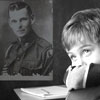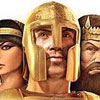Patton: Many Lives, Many Battles
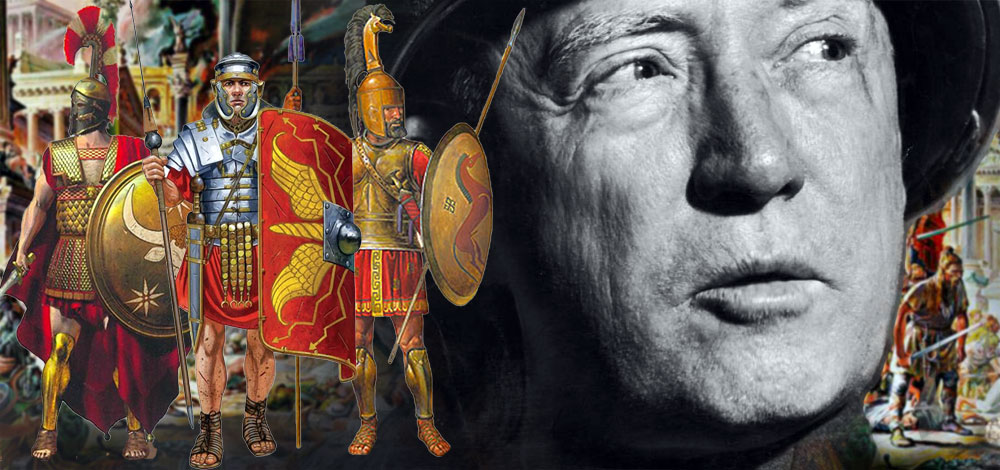 by Blake Stilwell
by Blake Stilwell
One of World War II’s legendary figures, Gen. George S. Patton, loomed largely in the narrative of the war for many reasons.
While no one would accuse the great general of being humble or unassuming, his ego and pride are well-deserved — to the betterment of mankind and the Allied cause. Patton, with his ivory-handled revolvers and propensity to quote the Hindu scripture of “The Bhagavad Gita,” was as eccentric in life as he was effective in combat.
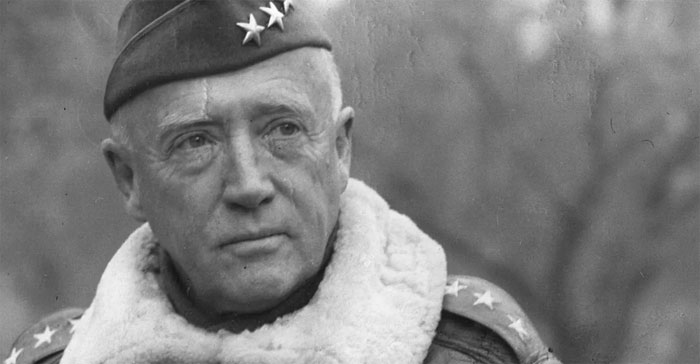 No example of this was more telling than his belief in reincarnation and his own numerous past lives.
No example of this was more telling than his belief in reincarnation and his own numerous past lives.
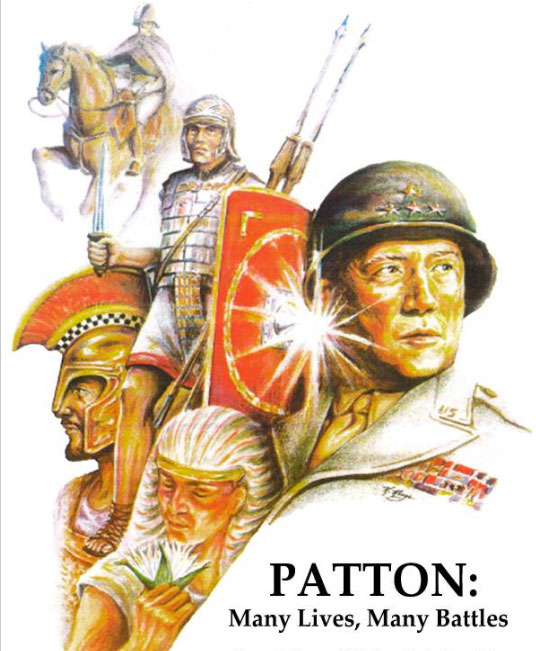 As a child, Patton believed he fought Turkish armies. As he grew into an adult, he still had visions of his death in past lives, from viking funerals to the Battle of Tyre. In 1991, Karl F. Hollenbach compiled Patton’s account of his past lives in a book called Patton: Many Lives, Many Battles. Though the man himself never completely expressed the entirety of his beliefs in reincarnation, he did describe numerous events in detail.
As a child, Patton believed he fought Turkish armies. As he grew into an adult, he still had visions of his death in past lives, from viking funerals to the Battle of Tyre. In 1991, Karl F. Hollenbach compiled Patton’s account of his past lives in a book called Patton: Many Lives, Many Battles. Though the man himself never completely expressed the entirety of his beliefs in reincarnation, he did describe numerous events in detail.
Maybe there was something to the idea. Patton’s prowess on the battlefields made him the most feared Allied general among the Nazi leadership, according the the German POW Lt. Col. Freiherr Von Wagenheim. General Patton’s own intelligence officer remarked that his sixth sense was often way ahead of the intelligence coming in. Perhaps this truly is a skill set acquired across lifetimes of military experience.
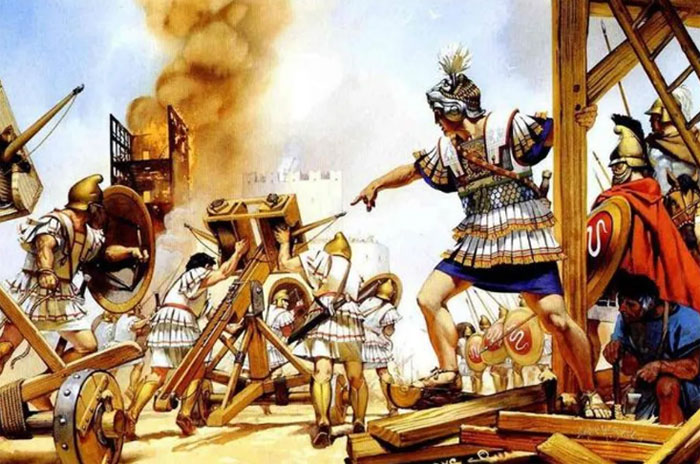 With Alexander The Great At The Siege Of Tyre
With Alexander The Great At The Siege Of Tyre
In the following poem which Patton wrote while commanding the Third Army in Europe, he described being a Greek Hoplite fighting the Persians under Darius. He helped smash the Persian navy and then laid siege to Tyre. The walls fell after five months as Patton and his fellow Hoplites stormed the city.
THROUGH A GLASS, DARKLY
Through the travail of the ages,
Midst the pomp and toil of war,
Have I fought and strove and perished
Countless times upon this star.
In the form of many people
In all panoplies of time
Have I seen the luring vision
Of the Victory Maid, sublime.
I have battled for fresh mammoth,
I have warred for pastures new,
I have listened to the whispers
When the race trek instinct grew.
I have known the call to battle
In each changeless changing shape
From the high souled voice of conscience
To the beastly lust for rape.
I have sinned and I have suffered,
Played the hero and the knave;
Fought for belly, shame, or country,
And for each have found a grave.
I cannot name my battles
For the visions are not clear,
Yet, I see the twisted faces
And I feel the rending spear.
Perhaps I stabbed our Savior
In His sacred helpless side.
Yet, I’ve called His name in blessing
When after times I died.
In the dimness of the shadows
Where we hairy heathens warred,
I can taste in thought the lifeblood;
We used teeth before the sword.
While in later clearer vision
I can sense the coppery sweat,
Feel the pikes grow wet and slippery
When our Phalanx, Cyrus met.
Hear the rattle of the harness
Where the Persian darts bounced clear,
See their chariots wheel in panic
From the Hoplite’s leveled spear.
See the goal grow monthly longer,
Reaching for the walls of Tyre.
Hear the crash of tons of granite,
Smell the quenchless eastern fire.
Still more clearly as a Roman,
Can I see the Legion close,
As our third rank moved in forward
And the short sword found our foes.
Once again I feel the anguish
Of that blistering treeless plain
When the Parthian showered death bolts,
And our discipline was in vain.
I remember all the suffering
Of those arrows in my neck.
Yet, I stabbed a grinning savage
As I died upon my back.
Once again I smell the heat sparks
When my flemish plate gave way
And the lance ripped through my entrails
As on Crecy’s field I lay.
In the windless, blinding stillness
Of the glittering tropic sea
I can see the bubbles rising
Where we set the captives free.
Midst the spume of half a tempest
I have heard the bulwarks go
When the crashing, point blank round shot
Sent destruction to our foe.
I have fought with gun and cutlass
On the red and slippery deck
With all Hell aflame within me
And a rope around my neck.
And still later as a General
Have I galloped with Murat
When we laughed at death and numbers
Trusting in the Emperor’s Star.
Till at last our star faded,
And we shouted to our doom
Where the sunken road of Ohein
Closed us in it’s quivering gloom.
So but now with Tanks a’clatter
Have I waddled on the foe
Belching death at twenty paces,
By the star shell’s ghastly glow.
So as through a glass, and darkly
The age long strife I see
Where I fought in many guises,
Many names, — but always me.
And I see not in my blindness
What the objects were I wrought,
But as God rules o’er our bickerings
It was through His will I fought.
So forever in the future,
Shall I battle as of yore,
Dying to be born a fighter,
But to die again, once more.
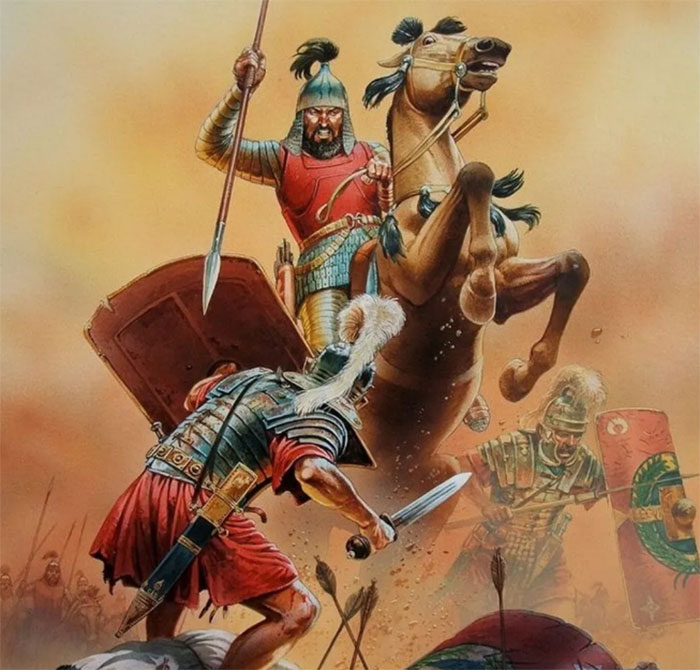 Fighting Parthians For Rome
Fighting Parthians For Rome
Patton next talks about slaying Parthians with his Gladius, a sword approximately 25-32 inches long. Since the battle was said to have taken place in the first century B.C., Patton would have been fighting for what was then still the Roman Republic in the Middle East under any number of legendary Roman names: Crassus, Cassius, and Marc Antony to name a few.
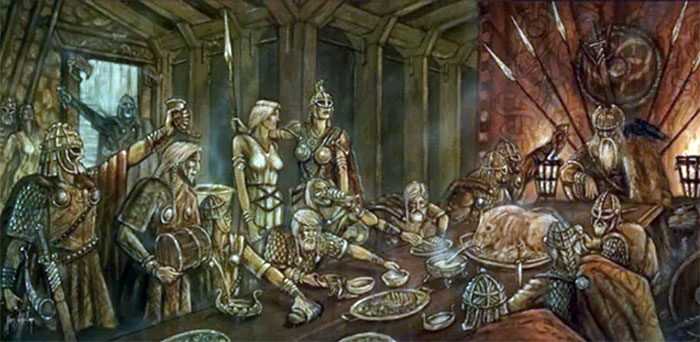 A Viking On His Way To Valhalla
A Viking On His Way To Valhalla
When Patton was a young adult, he was kicked by a horse, and broke his leg in three places. Close to death from his wounds, Patton had a vision of his death as a Viking raider — where a wraith appeared to him on the battlefield, offering to take him to the Viking afterlife.
 In The Hundred Years’ War
In The Hundred Years’ War
Many times in World War I and then in World War II, Patton would claim to know his way around towns and battlefields which he had never been before…as George S. Patton. Patton believed that this came from his time as a French knight fighting the English under Edward III, most notably at Crecy. The 1346 Battle of Crecy saw the English crush the French in a very lopsided fight.
Patton, like many other French knights, was impaled by an English lance.
As a child, Patton claimed to have fought alongside John the Blind of Bohemia, who also met his death at Crecy.
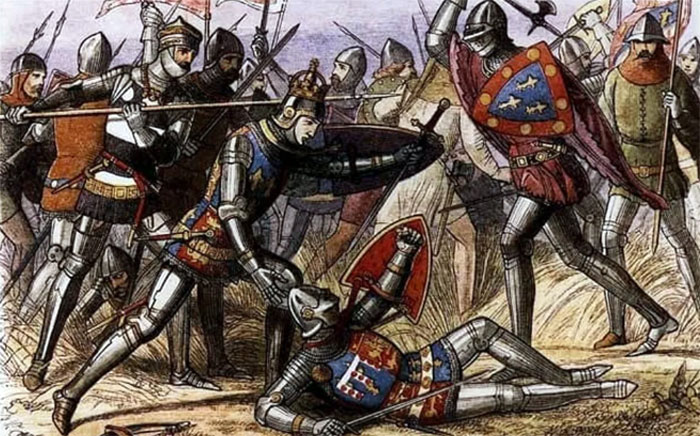 An Englishman At Agincourt
An Englishman At Agincourt
The afterlife knows no loyalty in the wars of men, apparently. Less than a century later, Patton was back in the Hundred Years’ War, this time on the side of the English. Patton claimed to have fought with King Henry V at Agincourt.
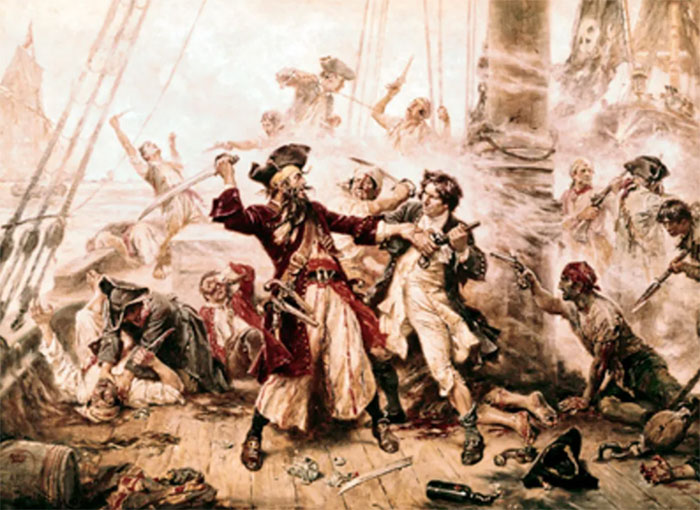 A Raiding Sailor
A Raiding Sailor
Three of Patton’s stanzas describe fighting on ships as he freed captured slaves or prisoners of war, fired into the enemy at point-blank range during a storm, or even was hanged as a pirate or privateer, describing feeling a rope around his neck as the red deck (presumably blood-stained) was set aflame.
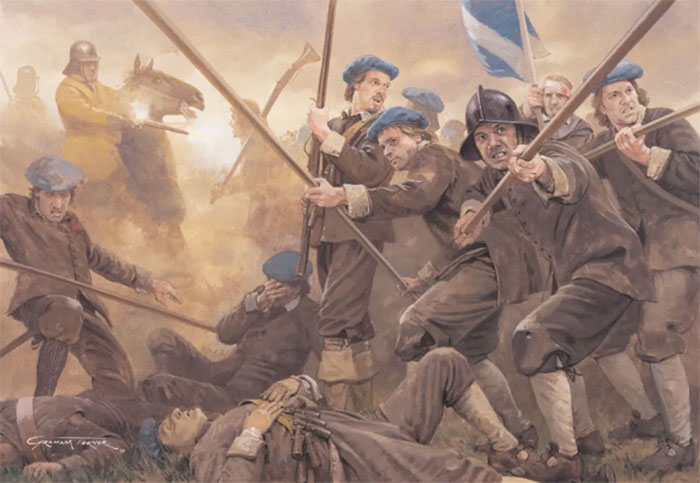 Fighting For The House of Stuart
Fighting For The House of Stuart
Again pitted against the English, though this time his loyalties were less to a nation than to the House of Stuart. Patton was a Scottish Highlander during the third English Civil War, supporting the Stuarts after the death of Charles I.
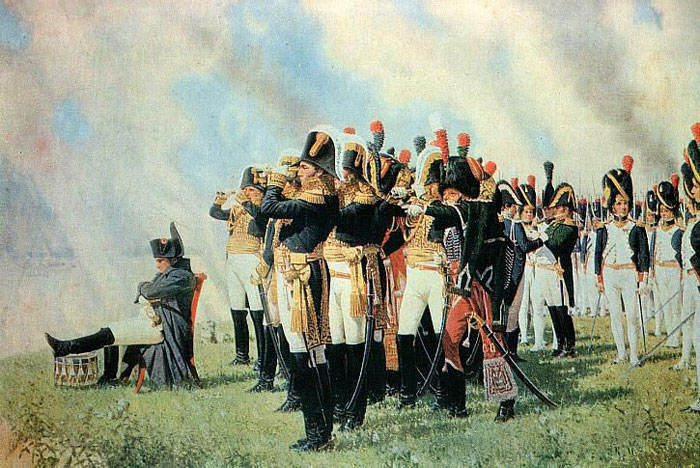 An Aide To A Napoleonic Marshal
An Aide To A Napoleonic Marshal
Patton describes “riding with Murat” in the poem. Joachim Murat was one of Napoleon’s marshals. Murat was one of the most capable cavalry officers and leaders in service to the French Emperor. He doesn’t specify his role with Murat, but the marshal was pivotal at battles like Jena and the invasion of Russia in 1812.
When the Allies left North Africa to invade Sicily, British General Sir Harold Alexander told Patton that if had been alive in the 19th Century, Napoleon would have made him a marshal — to which Patton replied: “But I did.”
At the end of his epic poem, Patton wrote that he would “battle as of yore, dying to be a fighter, but to die again, once more.”
Posted in Other Topics, Reincarnationwith comments disabled.


